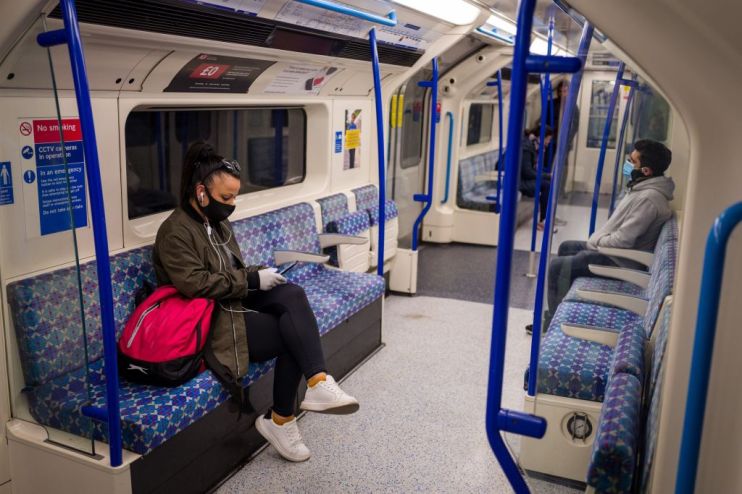Grant Shapps ‘optimistic’ of TfL bailout deal, but signals potential fare rises

Transport secretary Grant Shapps has said he is “optimistic” a deal can be struck to rescue struggling Transport for London (TfL), while signalling that fare hikes may be a condition of any bailout.
Shapps said at today’s press briefing that a bailout was on its way for TfL, just hours after Sadiq Khan said he would cut services if the government didn’t agree to a rescue package today.
Khan told LBC this morning that TfL’s coffers was about to drop below £1.2bn, which is the minimum buffer it must hold as mandated by the government.
It has suffered from a 95 per cent drop in Tube fares and an 85 per cent drop in bus fares due to the Covid-19 lockdown.
He issued an ultimatum to the government, demanding the government agree to a bailout today or he would slash TfL services.
It is believed City Hall is asking for up to £2bn in emergency funding.
Shapps said he was confident a deal would get done and urged Khan to increase TfL services back to pre-lockdown levels.
“We are now in a situation where I am optimistic of having a solution with TfL and the mayor of London,” he said.
“We don’t know what the long term will be, but I am confident TfL, London Underground and buses will continue to run and I’m encouraging the mayor to get that back to 100 per cent [capacity] quickly. As people travel more it’s important we do not have overcrowding.”
However, Shapps’ words came with a caveat.
The transport secretary indicated that a condition of the bailout could be that Khan raises fares, after he has kept them frozen since 2016.
“It’s very important in providing a rescue package that TfL and the London mayor can work with that we don’t end up in a situation where those outside the capital are unfairly carrying the burden,” he said.
“Sadly…fares do end up having to rise with inflation, if not there’s less money going into the system. If you have consistent freezes, it means that less money is going into the system.
“You can’t, then, have an unfair settlement where other British taxpayers are effectively bailing out the system.”
The Sunday Times reported last week that TfL had just £2bn in the bank and would run out of cash in two months without government support.
The hit to TfL’s finances from the virus could not have come at a worse time, after it had compiled an estimated £11bn in debt in recent years.
The transport body had a projected 2019-20 deficit of around £220m, which was a vast improvement on initial estimates.
TfL’s finances have been affected by the government reducing its contribution to the body by £700m per year, Crossrail’s budget blowouts and Khan’s fares freeze for single journeys implemented in 2016.